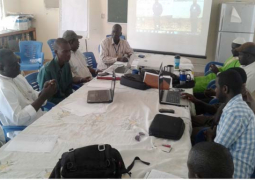The members of the Joint Public Accounts Committee and Public Enterprises Committee (PAC/PEC) of the National Assembly last week embarked on a retreat.
It enabled them to review, validate and adopt the draft PAC/PEC Joint Session Report for 2009 on the annual reports, accounts and financial statements of public enterprises and agencies of the
As stated by the National Assembly Speaker, Hon. Elizabeth Renner, a total of 45 public enterprises and agencies had been scheduled to appear before the committee.
But for reasons and circumstances beyond their control only 39 public enterprises and agencies were considered, out of which 35 had their reports adopted.
Our main concern here is why only 39 out of the whole figure. What happened to the remaining 6 public institutions and why out of the 39 that appeared only 35 were cleared, what then happened to the other 4?
The assembly select committees should work towards providing answers to these questions. In our view, all public institutions in this country must be accountable to the taxpayers as to how they utilise public resources, implement programmes and projects.
Those entrusted with the administration and management of public funds should strictly adhere to the rules and regulations governing their use.
The PAC/PEC should act now, since these committees are vested with the powers of a high court and, as a result they can call witnesses or invite civil servants to clarify issues.
Section 109 of the Constitution requests all public enterprises and agencies to submit their financial statement and annual reports to the National Assembly for scrutiny.
The committees are the driving forces of parliamentary work/business. It is in the committees that a detailed and in-depth scrutiny of issues is carried out.
In a democracy, parliament is the foundation of accountability, since its members have a constitutional responsibility to hold governments accountable to the citizens.
Parliamentary oversight, the second main function of any parliament is quite vital, as it brings about best practices and procedures by public officers and makes them accountable to the taxpayers, hence ensure efficiency and effectiveness in all areas of the public service delivery system.
"I wish that every human life might be pure transparent freedom"
Anonymous


